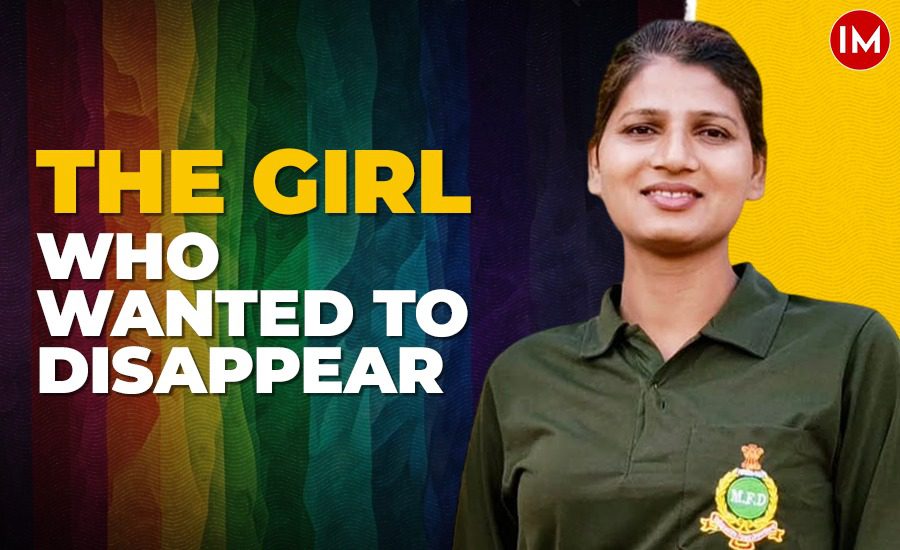When the Maharashtra government announced vacancies for forest guards in 2023, few noticed the significance of one particular application. Among the hundreds of aspirants, there was one name that quietly carried both hope and history—Vijaya Vasave, a transwoman from Nandurbar district.
Today, as she walks the rugged paths of Akkalkuwa taluka, uniform neatly pressed and head held high, she treads the very roads she once avoided as a child. For Vijaya, this posting is not just a job—it is a reclamation of the life she was once denied.
“I was perhaps the only transwoman to apply for the post,” she says softly, her voice steady yet touched with the weight of memory. “There were technical hurdles all along the way. I was ready to move to the High Court if needed. Our recruitment was under the tribal category, and it went through only after the tribal MLAs agitated for it.”
Her appointment has since entered history books. Vijaya is the first transgender woman to be appointed by the Government of Maharashtra’s Forest Department as a forest guard. But this achievement was not without years of pain, struggle, and small victories that shaped her journey.
A CHILDHOOD OF ISOLATION
Born in a tribal farmer’s family as Vijay, she was different from the beginning. Schooling in Ashramshalas—tribal residential schools—was particularly cruel. Her effeminate nature became a target for jokes, taunts, and worse. “Teachers and students both abused me,” she recalls. The ridicule cut so deep that, as a teenager, she kept a bottle of floor cleaner beside her bed, unsure if she wanted to see the next day.
This loneliness began to lift when she was in college in Nashik. A lecture by Pune-based LGBTQ activist Bidumadhav Khire changed the course of her life. “Until that lecture, I thought I was a misfit. I did not know people like me existed.” For the first time, she found words to describe what she felt inside.
BECOMING VIJAYA
After completing her graduation in 2019, Vijaya joined the Karve Institute of Social Sciences in Pune for her Master’s in Social Work. It was here that she began her transition—an arduous journey of therapy, hormonal treatment, and surgeries.
“I come from a tribal farmer family. The dichotomy within me was never clear to anyone. But since childhood I felt I was a woman. Once my transition was complete, I was finally at peace with myself,” she says.
To support herself, she worked in contractual positions with the National Aids Research Institute (NARI), even as she prepared for government examinations. But the road to a secure government job was complicated. With no horizontal reservation for transgender people, she had to compete in the women’s category. For someone whose body had undergone profound change, meeting the physical standards was particularly difficult. Still, she cleared both the written and physical tests.
She credits the support she received along the way. “The Jalgaon-based Deepstambh Foundation took care of me like a daughter when the stress was too much. And for the first time, the Forest Department allotted two senior officers to guide me. That meant a lot.”
BACK TO NANDURBAR
For most of her adult life, Vijaya lived in Pune, a city where she found relative acceptance. Her posting in Akkalkuwa, a remote tribal belt, has been an adjustment. “Being back home is like a different life altogether,” she admits.
Her presence has not gone unnoticed. “People here had never seen a transition where a biological man becomes a woman. When I go about my duty, people stare,” she says. But curiosity is slowly giving way to quiet admiration. Through her social media, she has already become a reference point for others in the district. “Some people have approached me asking for help. I try to guide them the best I can. In this part of the state, where information travels slowly, even a little support makes a difference.”
MAKING SPACE FOR OTHERS
What makes Vijaya’s story remarkable is not just her personal triumph but the doors she has opened for others. She was the first in Maharashtra to be officially issued a transgender certificate by the government. And now, she is the first to join the forest department in her identity as a transwoman.
Her achievement is also a reminder of the larger gaps that still exist. The absence of horizontal reservation continues to limit opportunities for transgender individuals. Despite this, Vijaya’s success has shown that it is possible to break through barriers that once seemed impenetrable.
A LIFE REWRITTEN
Each day, as Vijaya patrols the forests of Nandurbar, she carries with her the weight of her past and the promise of a future where people like her will not have to fight so hard to belong. From the lonely girl who once kept a bottle of poison near her bed to a government officer in uniform, her journey speaks of survival, acceptance, and quiet triumph.
“I thought I was a misfit once,” she says, looking back at the years of struggle. “Now, I know I was only waiting to become who I truly was.”
For the people of Akkalkuwa, she is still an unusual sight. For the transgender community in Maharashtra, she is proof that the road may be long, but it does not have to end in despair.

































